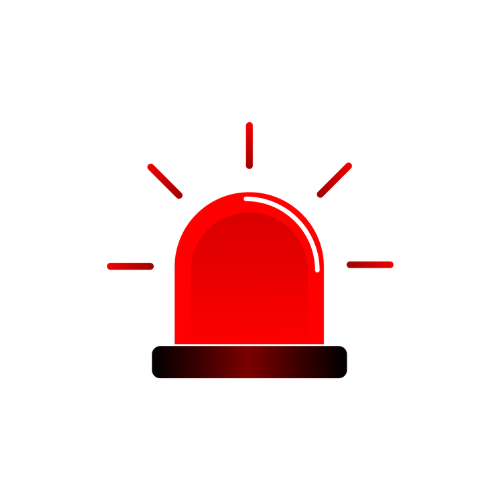Anxiety and panic attacks are two closely related yet distinct conditions that can significantly impact your quality of life. While anxiety is a general term for various disorders that cause nervousness, fear, apprehension, and worrying, panic attacks are sudden episodes of intense fear that trigger severe physical reactions when there is no real danger. In this blog post, we will explore the symptoms, causes, and effective treatments for anxiety and panic attacks, providing you with the information you need to manage these conditions.
What is Anxiety?
Anxiety is a natural response to stress and can be beneficial in some situations. It can alert us to dangers and help us prepare and pay attention. However, anxiety disorders involve more than temporary worry or fear. For people with anxiety disorders, the anxiety does not go away and can worsen over time. Symptoms can interfere with daily activities such as job performance, school work, and relationships.
Common Symptoms of Anxiety
- Excessive worry
- Restlessness or feeling on edge
- Fatigue
- Difficulty concentrating
- Irritability
- Muscle tension
- Sleep disturbances (difficulty falling or staying asleep)
What are Panic Attacks?
Panic attacks are sudden periods of intense fear that may include palpitations, sweating, shaking, shortness of breath, numbness, or a feeling of impending doom. They are characterized by their abrupt onset and peak intensity within minutes.
Common Symptoms of Panic Attacks
- Rapid heartbeat or palpitations
- Sweating
- Trembling or shaking
- Shortness of breath or sensation of choking
- Chest pain or discomfort
- Nausea or abdominal distress
- Dizziness, lightheadedness, or feeling faint
- Chills or hot flashes
- Numbness or tingling sensations
- Feelings of unreality or detachment
- Fear of losing control or dying
Causes of Anxiety and Panic Attacks
The exact causes of anxiety and panic attacks are not fully understood, but a combination of genetic, environmental, psychological, and developmental factors may play a role.
Common Triggers and Risk Factors
- Genetics: Anxiety disorders can run in families.
- Brain Chemistry: Imbalances in brain chemicals (neurotransmitters) may contribute to anxiety.
- Personality: People with certain personality traits, such as being overly cautious or shy, may be more prone to anxiety.
- Life Events: Stressful or traumatic events, such as abuse, death of a loved one, or significant life changes, can trigger anxiety disorders.
- Medical Conditions: Certain medical conditions, such as thyroid problems or heart arrhythmias, can produce anxiety symptoms.
- Substance Abuse: Drugs and alcohol can cause or worsen anxiety.
Effective Treatments for Anxiety and Panic Attacks
While there is no one-size-fits-all cure for anxiety and panic attacks, several effective treatments can help manage and reduce symptoms.
1. Cognitive Behavioral Therapy (CBT)
CBT is one of the most effective forms of therapy for anxiety and panic attacks. It involves identifying and challenging negative thought patterns and behaviors and replacing them with more positive and constructive ones.
2. Medications
Medications can be an effective part of treatment for anxiety disorders and panic attacks. Commonly prescribed medications include:
- Selective Serotonin Reuptake Inhibitors (SSRIs): These antidepressants help regulate serotonin levels in the brain.
- Benzodiazepines: These fast-acting anti-anxiety medications provide immediate relief but are generally prescribed for short-term use due to the risk of dependence.
- Beta-Blockers: These medications help manage physical symptoms such as rapid heartbeat.
3. Lifestyle Changes
Making certain lifestyle changes can significantly reduce anxiety and panic attack symptoms:
- Regular Exercise: Physical activity releases endorphins, which can improve mood and reduce anxiety.
- Healthy Diet: Eating a balanced diet, staying hydrated, and avoiding stimulants like caffeine and nicotine can positively impact overall mental health.
- Adequate Sleep: Getting enough sleep is crucial for emotional and physical well-being.
- Stress Management: Incorporate stress management techniques, such as yoga, meditation, or journaling, into your daily routine.
4. Mindfulness and Relaxation Techniques
Practices such as mindfulness meditation, deep breathing exercises, and progressive muscle relaxation can help reduce overall anxiety levels and improve your ability to manage stress.
5. Support Network
Having a strong support network can make a significant difference in managing anxiety and panic attacks. Talk to friends or family members about your experiences, or join a support group where you can share your challenges and learn from others.
Developing a Personalized Coping Plan
Creating a personalized coping plan can help you manage anxiety and panic attacks more effectively. Here’s how to develop one:
- Identify Triggers:
- Keep a journal to track situations, thoughts, or activities that trigger your anxiety or panic attacks.
- List Immediate Coping Techniques:
- Choose a few immediate coping skills that work best for you and write them down.
- Outline Long-Term Strategies:
- Incorporate lifestyle changes, exercise, mindfulness practices, and therapy into your routine.
- Create a Support System:
- Identify people you can reach out to for support and include their contact information in your plan.
- Practice Regularly:
- Practice your coping skills regularly, even when you’re not experiencing anxiety or panic attacks, to make them more effective during times of need.
Conclusion
Anxiety and panic attacks can be incredibly distressing, but with the right strategies, you can manage their impact and regain control of your life. By using immediate coping techniques, adopting long-term strategies, and developing a personalized coping plan, you can effectively manage anxiety and panic attacks and improve your quality of life. Remember, you are not alone, and with the right tools and support, you can navigate through these challenging moments and find peace.
If you’re currently experiencing anxiety or panic attacks, start with the immediate strategies outlined above to help calm yourself down. For long-term management, consider integrating the suggested strategies into your daily routine and seeking professional guidance to develop a comprehensive plan tailored to your needs.

